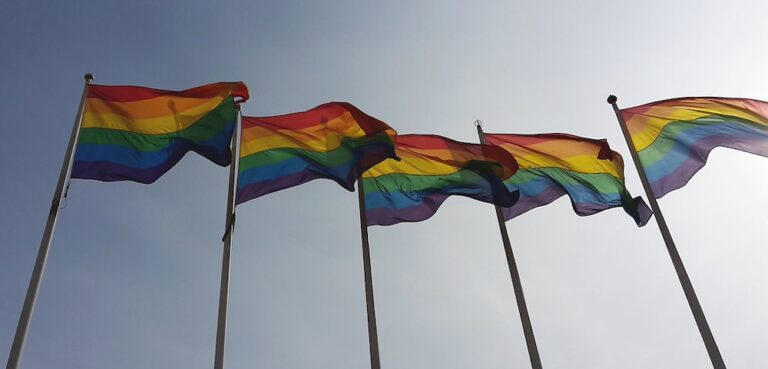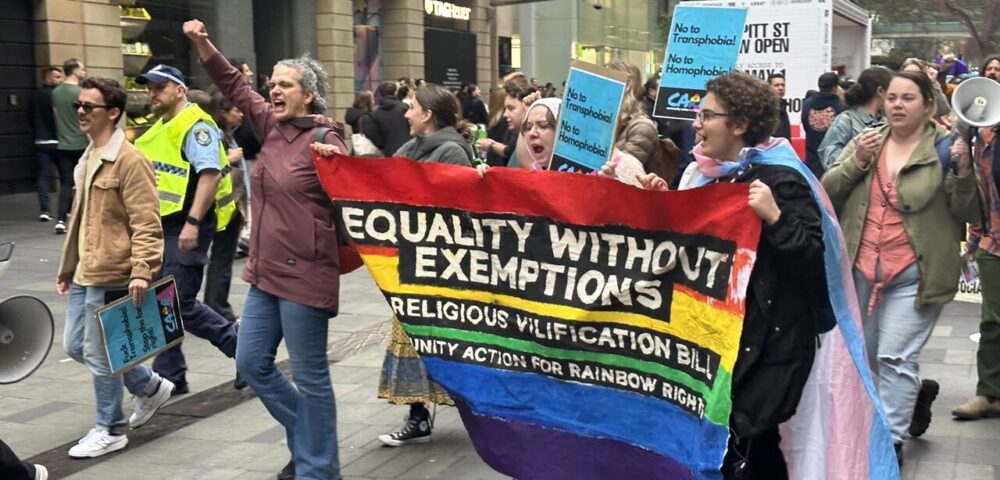
United Nations Body Passes Historic Resolution Safeguarding Intersex Rights

The United Nations Human Rights Council has made history by passing a resolution affirming the rights of intersex individuals, marking a landmark moment in human rights advocacy.
The resolution, titled “Combating discrimination, violence, and harmful practices against intersex persons,” was spearheaded by the governments of Australia, Chile, Finland, and South Africa. 24 countries voted in support of the resolution, with 23 abstentions and no votes against it.
According to the U.N.’s OHCHR, experts estimate that up to 1.7 percent of the population are born with intersex traits.
Intersex individuals are born with sex characteristics that deviate from traditional male or female norms. Babies born with variations in their sex characteristics, also known as intersex traits, are frequently subjected to irreversible and medically unnecessary “normalising” surgeries, posing significant risks.
These variations, while not rare, are often misunderstood.
Human Rights Advocate Applauds Historic Resolution
Executive Director of Intersex Human Rights Australia (IHRA) Dr. Morgan Carpenter commended the effort, praised the initiative, hailing it as a significant moment for the intersex community.
“Because of the way our bodies are perceived as different, we can experience stigmatisation, discrimination and harmful practices, including medical interventions to make our bodies appear or function in ways that are more typically female or male.
“We are calling for the same rights as everybody else. It’s about the universality of human rights, including the rights to bodily integrity and bodily autonomy, and freedom from harmful practices”, Dr Carpenter said.
Persistent Pressure for Unnecessary Surgeries on Intersex Children
Since the 1950s, surgeons have been performing medically unnecessary “normalising” surgeries on intersex children, including procedures like clitoral size reduction, which can lead to scarring, sterilisation, and psychological trauma.
Despite growing consensus that these surgeries should cease and global efforts towards banning medically unnecessary procedures on intersex individuals, some parents still encounter pressure from surgeons to opt for these operations for their young children, who cannot participate in the decision-making process.
U.S. Ambassador Michèle Taylor also commented on the ongoing 55th session of the Human Rights Council, highlighting the significance of the adoption of the inaugural resolution on the Rights of Intersex Persons.
In a statement posted on X, U.S. Ambassador Taylor wrote “The adoption of the first-ever resolution on the Rights of Intersex Persons at #HRC55 marks a landmark advancement in human rights,” U.S. Ambassador Michèle Taylor wrote on X, referring to the Human Rights Council’s ongoing 55th session”.
The landmark resolution has been hailed by Human Rights Watch (HRW) as ground-breaking. HRW emphasised that the decision reflects a “growing international resolve to address rights violations experienced by people born with variations in their sex characteristics”.
Advancements in Intersex Rights: ACT Leads the Way
Last year, landmark legislation banning unnecessary and irreversible medical procedures for intersex individuals was enacted in the ACT Legislative Assembly.
The Variation in Sex Characteristics (Restricted Medical Treatment) Bill 2023 aims to halt deferrable treatments on intersex individuals’ sex characteristics until they reach an age where they can participate in the decision-making process.
ACT Chief Minister Andrew Barr expressed pride in the ACT’s role in advancing a higher standard of care for individuals with variations in sex characteristics.
“Alongside celebrating how far we’ve come, I think it’s incumbent [to recognise] all members in this parliament, who care about the autonomy, consent and safety of people with variations in sex characteristics and I thank them for their support of this bill today”, ACT Chief Minister Barr said.










